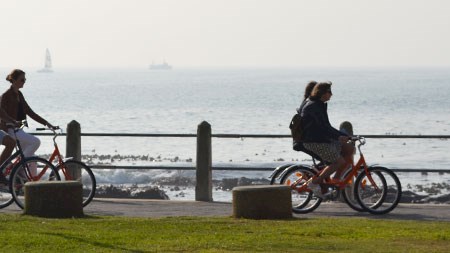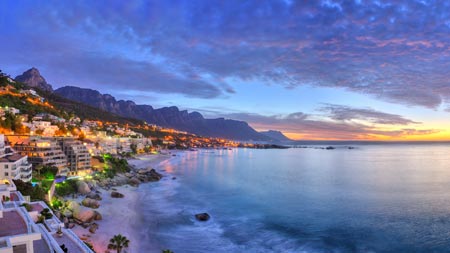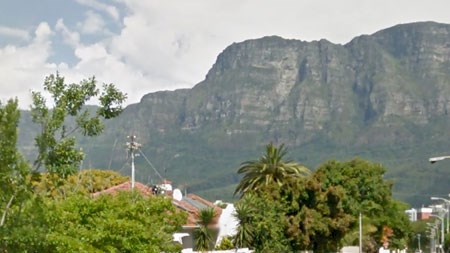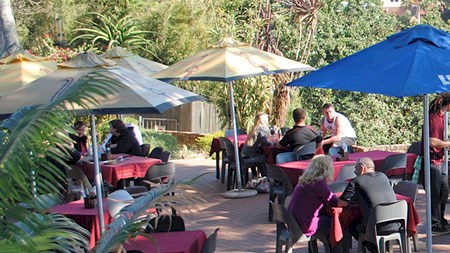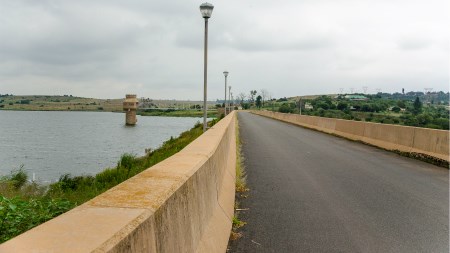Quirky and cosmopolitan, a melting pot of old and new, Sea Point has a vibrant urban charm that is hard to resist.
The first things that Sea Point's residents mention about it is its weather: tucked around the curve of Signal Hill, the suburb is sheltered from the worst of the southeaster that afflicts the City Bowl. It also seemingly gets more hours of sunshine, enjoys grandstand sunsets, and in summer a sea breeze rolls off the waves to lower temperatures on even on the hottest day.
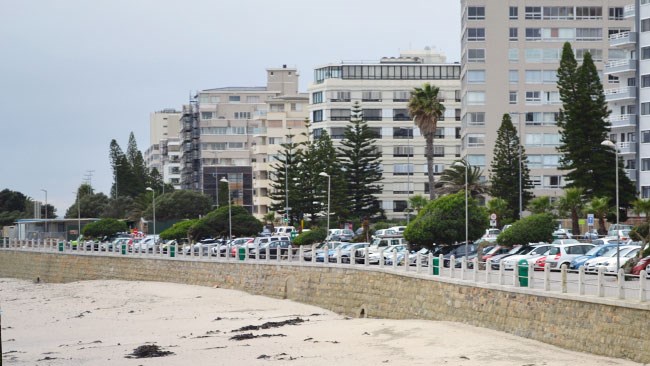
Sea Point gives one a sense of being part of the broader city community (it is a short walk to Green Point Stadium for taking in concerts and sports matches) and yet it remains almost village-like, with everything residents need being on their doorstep.
“There is so much to love about Sea Point,” says Dani Cohen, who moved here 16 years ago when it was still “slightly grungy” but more affordable, property-wise, than the City Bowl. “Walking along the promenade, in the mountain and Green Point Park; the smell, sound and view of the sea… It’s different every day.”
With its long grassy promenade and pavilion, the seafront is reminiscent of a 1920s resort. But behind the parade of luxury apartment buildings, all of which enjoy uninterrupted ocean views, there is a vibrancy, with bustling Main Road presenting a microcosm of society.
No longer grungy (like the CBD, Sea Point has been extensively spruced up in the past decade), it retains a characteristic workaday mix of small family-run shops and cafés that have stood here for 30 years or longer. These premises feature alongside trendy new restaurants and boutiques.
Taking you back to the days when shopping was done in high streets, not malls, one can find everything from hardware to furniture, beauty salons and delis as well as the venerable Cafda (Cape Flats Development Association) bookshop. There is a Pep store and a Shoprite store on Main Road, a Spar and Checkers at the chic end of Regent Road, and several Woolies food stores.
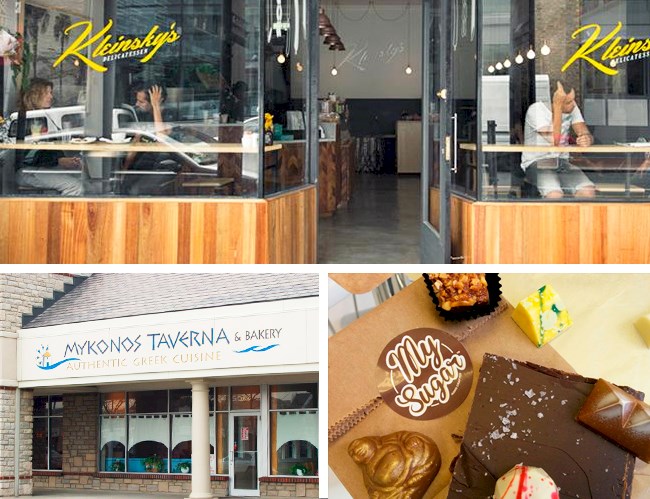
And if there’s any ingredient you need, Sea Point has a wide representation of cultures, from kosher and halal to Asian food, and a diverse selection of restaurants to match. “The buzz is very cosmopolitan with people from all over the world,” says Dalia Kaplan, who grew up here and has moved back for her children’s schooling, “and there are shops that cater for all those people, so you can get anything you want, all within walking distance.”
The ocean and all its moods are second nature to Sea Pointers for whom the long promenade is woven into the daily routine, combining exercise, people-watching, fresh air and nature, with dolphins, seals and whales often visible a little way offshore.
The promenade attracts people from all walks of life, old and young, and is the focal point for the community, with informal soccer matches on the grass, joggers, dog walkers, local characters, and families getting out in the evening. There are art installations, children’s playgrounds and outdoor gyms along its length. The jewel in the crown is the Pavilion, comprising four open-air saltwater swimming pools right at the edge of the sea. Many intrepid locals swim year round, no matter the temperature, fitting in their lengths before work when the Pavilion opens at 7am. And in summer it is a mecca for people from all over Cape Town.
For those who prefer to get away from the sociable promenade, Saunders Rock beach, just over the border into Bantry Bay, is a real hidden gem, with a sandy strip, plenty of rock pools and a small sea pool. Then there is the series of pedestrian steps linking Kloof Road to Victoria Road; incorporated into a morning walk or run, it saves any amount of step-training at the gym.
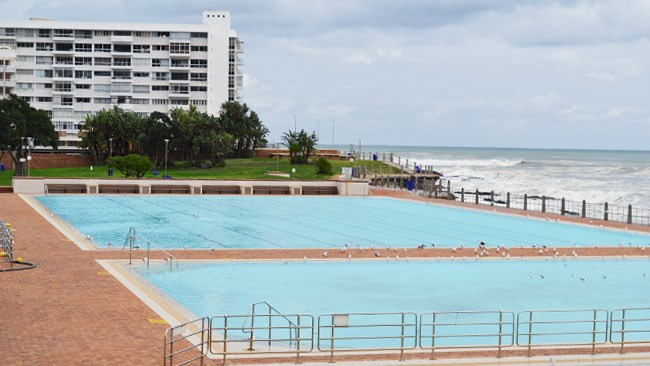
As for educational facilities, schools include the well-regarded Sea Point Primary, the French School of Cape Town and Herzlia pre-primary and primary schools. For high school, kids tend to travel the short distance to Camp’s Bay for a good public school, or to a private school such as Reddam House in Green Point.
The influx of foreign buyers snapping up property at the top end of the market, and the developers riding the rising tide of gentrification haven’t affected the most enduring quality of Sea Point, namely its sense of community, built up over many generations of families living close to one each other, where the same family restaurants and shops have been trading for years, and where the ever-changing ocean is the constant backdrop to daily life.
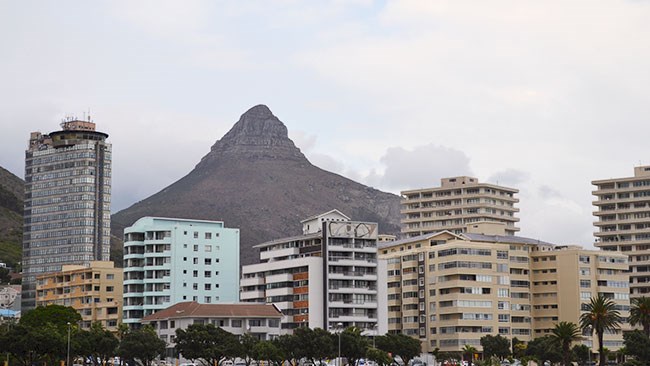
Eat Like a Local
- Kleinsky’s, for hot pastrami on rye and great breakfasts
- Mykonos Taverna, for traditional Greek fare and seafood
- Shawarma Express for falafel and authentic shawarmas
- Buzbey Grill (an institution, having been around for 30 years), for the best calamari and steak
- Engruna Eatery, for gourmet burgers and wood-fired pizzas
- Posticino, for traditional Italian cuisine and pizzas
- La Mouette, for excellent but affordable fine dining on a special occasion
- Bootleggers, for the best coffee
- My Sugar, for handmade chocolates and coffee
Property prices in Sea Point
- A typical property for sale in Sea Point is a two-bedroom apartment at an average asking price of R4,295m
- 84% of properties for sale are apartments
- 4% of properties for sale are in a complex, at an average asking price of R4,75m
- 12% of properties for sale are houses, at an average asking price of R4,15m
- Average monthly rental for a two-bedroom apartment: R17,500
Demand
Properties for sale in Sea Point comprise 19% of total sales listings in the Atlantic Seaboard area. They receive:
- 25% of the interest
- 32% of the total rental listings
This article originally appeared in Neighbourhood, Sunday Times.
